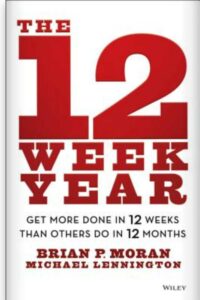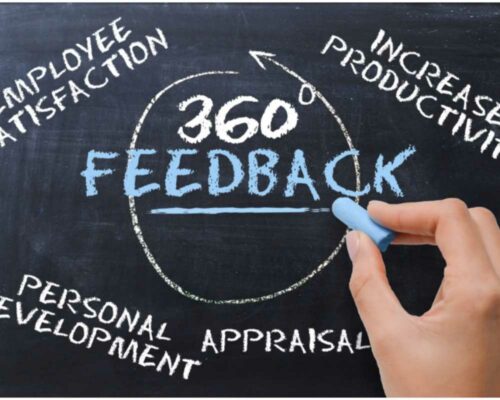If you manage an organization or people, you have probably heard of performance management. Successful business management depends on this fundamental concept. For your company’s benefit, you might want to learn about the most effective ways to improve performance management at work.
UPDATED: OCTOBER 25, 2022
Effective performance management practices
A company’s goals and objectives can be met through performance management (PM), whether you’re the CEO or a manager. PM should be a basic understanding of anyone in leadership.
In my own words, PM is described as the following:
“A system that can improve employees’ performance- resulting in a more efficient, effective, and profitable company.”
Here I will outline some practices for project management. They are relevant and best suited to the workplace of the 21st century.
- Throw Out The Traditional Performance Review Method
- Conduct Quarterly Reviews Over Annual Reviews
- Discuss Short-Term Goals Regularly
- Train Managers Into Being Coaches
- Use OKRS To Match Individual And Corporate Objectives
- Provide Real-Time Feedback
- Eliminate A Rating System And Replace It With A “Pass-Fail” System
- Document Progress Along The Way
- Establish The Most Effective Approach To Measuring Success
Throw out the traditional performance review method
Over the years, many companies have stuck to the conventional approach to performance reviews. It goes something along the line of a manager and the employee meeting every 12 months to review performance objectives. From that point on, maybe they’ll discuss very little of it as the year goes by.
Today, this approach is ineffective because it’s not enough for employees to get quality feedback. It also gives them fewer opportunities to improve their skillset.

Employees feel less motivated and not as accountable without regular check-ins. The less motivated they become, performance may likely go down.
Conduct quarterly reviews over annual reviews
One better approach to the yearly review format would be quarterly check-ups. It’s the idea of meeting every 90 days to review performance expectations.
Instead of waiting every 12 months, maybe every three months would be faster and much more effective. Meeting a few times during the year can help employees know how they’re doing while adjusting to their performance goals.
I’ve always liked the idea of doing check-ups every 90 days or so. It’s better for both the employer and employee to meet company objectives and standards.
One book related to a three-month (or 12-week plan) called the “12 Week Year: Get More Done in 12 Weeks Than Others Do In 12 Months”. It’s one of my favorite strategies for running a business. Check out the link below to get a better understanding of the book.

Discuss short-term goals regularly
Performance needs to be reviewed more often. In the fast-changing world we live in, businesses need to continue adapting to change—for example, understanding consumer behavior and what their clients need from them.
When adapting to short-term goals, people are more focused on their priorities. When things are clearer, they know what they need to work on.
Also, it helps employees prepare to make adjustments to their goals as needed. Priorities tend to change often, so it’s better to make those adjustments more often than once a year.
How to go about developing short-term goals
There are a couple of ways to develop short-term goals. One that I experienced in previous jobs was monthly check-ins during the year. I thought it was helpful to meet with a manager every month to check in on my progress at work.
Some companies will go further and possibly do daily check-ins. But whatever the case is, doing check-ins more often will help keep employees more accountable for their actions. It helps businesses in general if their employees are putting in maximum effort.
Train managers into being coaches
When conducting one-on-ones with direct reports, managers need adequate training when giving feedback. Instead of just saying a bunch of fancy terms to someone else, managers need to play the role of “coaching.”
According to one report, around 28% of employees felt that their managers held practical discussions about their performance. It may have resulted from managers not properly coaching them, where it might have been more effective.

My experience with feedback from managers
In some jobs I had, the managers I worked with weren’t quoted the best at giving me the best feedback. Instead, I would hear them tell me something such as, “You’re doing great, you’re meeting expectations…blah, blah, blah.”
Getting that type of feedback is not suitable for anyone, and I saw it as a disservice. Effective coaching involves giving specific feedback about what employees can do in real-time.
Some questions to ask include the following:
- What are you going to get done this week? Or what are you going to do in the next 30 days?
- Is there anything I can do to help you reach those goals?
Asking these types of questions can create a great dialogue about an individual’s performance. From that point, it’s best to move on and focus on the future.
Use OKRS to match individual and corporate objectives
One modern approach to improving performance is objectives and key results, also known as OKRS. It’s the idea of linking individual contributions to company priorities.
When bringing the two together, employees can see how their efforts impact the company’s execution. Both of them help support the overall business goals.

One company that has been successful with OKRS is Google. One of the most successful companies in modern history, Google using OKRS has helped accomplish its company objectives. It’s one reason why Google continues to be successful and impacts society.
Provide real-time feedback
Employees should receive feedback regularly instead of just once a year. Providing input in real-time helps employees know what they need to improve and make adjustments if necessary.
There are many benefits to getting regular feedback. Whether it’s every week or a few times a month, regular feedback helps a lot. Some benefits include:
- Reduces stress for employees
- Employees get faster feedback on work events, especially after presenting as a group
- Allow the option to ask many people (it reduces bias in feedback opportunities)
- Get the option of providing specific feedback, such as on a work project
360-degree feedback model
Companies use something called 360-degree feedback as an example. Someone can use this model to get multiple perspectives on their work ethic, skills, and overall impact on performance.
It provides individuals with feedback from multiple people who work closely with them. These may include coworkers, managers, or supervisors from your department. As an alternative to one-on-one feedback, I like this model.

Eliminate a rating system and replace it with a “pass-fail” system
Some companies may have used a grade-rating system to evaluate employee performance. However, that seems to be viewed as unfair to employees. It can create negative perceptions of a company as well.
A rating system is very similar to the antiquated education system that still exists now. Why should employees complain about getting a “C” grade when their coworkers somehow received an “A” grade at work?
In its place, maybe a “pass-fail” approach is more appropriate. It reduces the feeling of unfairness, and everyone is treated more fairly.
Innovation and teamwork indeed take center stage within this process. More so, there’s a much better focus on the short-term priorities discussed earlier in this post.
Document progress along the way
To make it easier for a manager and employee, it helps document progress on an individual’s performance. Making notes can significantly help in the long run, and it’s easier to refer back to later on.
Any system that can track performance goals will do just fine with whatever companies use to document their goals and objectives. Also, it should be easy for a manager and employee to come back if changes need to be made throughout the year.
Documenting my work is extremely important to me. By that, I mean I’ll write down what I accomplished or what I need to do.
That way, I can keep myself accountable. Furthermore, so I can be honest about my progress when I talk to others.

Establish the most effective approach to measuring success
No matter what system you use to replace the traditional method of performance management, ask yourself the following questions:
- Is performance management taking place in “real-time”?
- Is performance management working effectively?
Stick with whatever approach you are working on if you answered yes to those two questions. It’s easier to achieve business objectives if there are weekly check-ins (and you see results).
If this is not the case, then you might have to reconsider your approach. Some approaches (e.g., 360-degree feedback) are better suited to some businesses than others. Identify one that works best for you and move forward with it once you’ve narrowed it down.
Final Words
The role of PM has changed since the 20th century. Companies today are doing away with the one-on-one (annual) reviews between managers and employees.
Today, changing work environments and prioritizing business goals continue to take place. The steps laid out earlier can be a helpful guide for anyone in a management role.
Your Turn: What is your understanding of performance management?
I want to turn this over to you. Is there a PM model you’re following in your company if you’re in management?
Have you encountered any problems with the approaches? Which approaches have you found to be the most effective?
Feel free to share your thoughts by leaving a comment below. I look forward to reading them, and I’ll gladly respond promptly.
If you got value from this article, please bookmark this website to visit later for new posts every week. Spread the word to others. Sharing is caring! To get more of this type of content, you won't want to miss out my daily email letters. These are worth some golden nuggets and best tips to help you in your business. Sign up today! Count me in on the daily letters via email! For the latest videos that come out every week, subscribe to the YouTube channel. Also, be sure to check out our new space on Twitter X! YouTube Twitter (X) Medium Profile
Eric is the owner and chief editor of notimekillers.com. He takes great pride in helping people manage their time and grow their businesses. Eric is a firm believer in financial and time freedom, as he believes in financial independence and taking ownership of your time. “Time is your most important asset. It can be your best friend or worst enemy. How you use your time can shape the future you desire to have.” In his leisure time, Eric loves to write and read whenever possible. He enjoys going for long walks outdoors while doing in-home workout videos every week. You can also connect with Eric via LinkedIn.


Wow, there are some great, actionable tips in here that have the potential to make big impacts on your most important projects! As someone who previously worked in a corporate environment, the annual review definitely didn’t provide the right feedback mechanism to encourage growth. I definitely agree that a quarterly check-in can help to adjust things in a more timely manner!
Hi Aly,
Annual reviews are becoming more outdated as the workplace continues to change. From working in a corporate environment (like you mentioned), I don’t see much benefit to meeting one time a year regarding work performance.
From what you wrote, you understand how it doesn’t give much value as it once did in the past. So you’re aware that it’s not effective as it used to be.
Quarterly check-ins are more effective, as it comes sooner and it takes place a couple times throughout the year. So I think more people will move toward that option, or try something different than an annual review (once a year).
Thank you very much for your thoughts- they’re much appreciated.
Hello Eric,
Who doesn’t want to be able to manage their time efficiently? I think most of us would. As someone who worked 9 – 5 for many years, these guidelines would have been welcomed!
I always hated the dreaded ‘review’ so totally agree that a quarterly review would be more effective. Real-time feedback is also important in order for employees to understand what they are doing well and where they could use some help and improvement.
Times certainly changed from the days when I worked in an office environment, hopefully for the better.
Hi Mary Ann,
Being able to manage our time better is something all of us can improve on. For me, it’s a life-long process that involved good practices, while experiencing trial and error as well.
Every individual is different- based on what works best or not. So we have to take that into consideration as well.
Yes, annual reviews certainly sound like a thing of the past and should be put away for most workplaces. That’s why quarterly reviews are far much better and more efficient. It helps all of us to get regular feedback and make adjustments when needed.
Times sure do change, and it’s going to be different as the years go by. So we’ll see what happens when it comes to conducting performance reviews.
Thank you for sharing your thoughts- they’re much appreciated!